If you have been keen then you might have noticed that Google has been flagging off some sites as “Not Secure”. It has got something to do with web security, precisely SSL and HTTPS. It turns out that SSL Certificate is becoming a must have feature in websites today. If you haven’t joined the bandwagon, we will be telling you the importance of SSL and why you should move your site from HTTP to HTTPS.
Page Contents
SSL & HTTPS Explained
To start with, SSL stands for Secure Socket Layer and it is essentially a protocol that secures communication in the web. In other words, if your site has SSL installed then the communication between your browser and web server is secured from eavesdroppers. This way you reduce the chances of falling prey to attacks like phishing, Man in The Middle (MITM) etc. This is where the difference between HTTP and HTTPS comes in. The former is otherwise referred to as Hypertext Transfer Protocol and it is the widely known communication protocol that has been used ever since the invention of the World Wide Web.
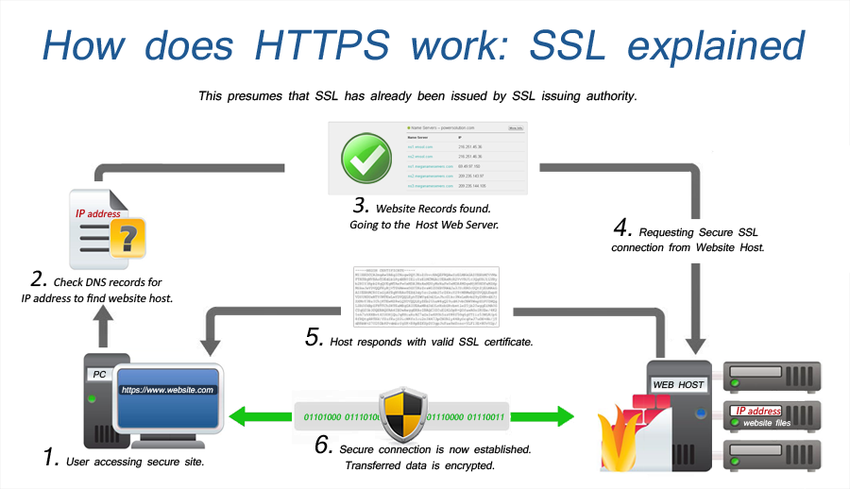
source:powersolution.com
But, then the evolution of the web meant that cybercrime started growing as well. This led to the invention of the Hypertext Transfer Protocol over SSL/TLS or otherwise referred to as HTTPS. The main reason behind HTTPS is to protect the accessed website whilst also ensuring the privacy and integrity of the data on the move. It was invented primarily invented to protect payment transactions on the web, sensitive information in corporate IT systems etc. It has however turned to an important element of the web to the point that Google started flagging of non HTTPS sites as unsecure in the URL bar and in the latest versions of Chrome browser.
If you don’t believe you can set up a good SSL certificate yourself there are plenty of good web hosting providers out there and according to hosting.review, that can be done for a small fee.
So why are SSL and HTTPS important to your website?
The Important of Using SSL in Your Website
Here are a number of reasons why you should move to SSL:
SSL Improves Web Security
One of the key reasons to install an SSL certificate in your site is to secure the communication between your browsers and the server side. This is quite important in preventing some of the common attacks used by cyber criminals such as phishing and MITM attacks which are essentially easier when the exchange isn’t secure.

source:entergraph.com
Security is more of a necessity than choice if your website handles sensitive data like credit card info. You don’t want such data falling into the wrong hands as it could be detrimental to your business. As a matter of fact, the Payment Card Industry Data Security Standards (PCI DSS) requires that you have SSL installed if you are to handling credit card transactions. This entails using strong private keys, strong cipher suites, using trusted SSL, securing card details etc.
Improve Website SEO Performance
If you know a thing or two about digital marketing particularly SEO, then you know that SSL has got something to do with its performance. SEO stands for Search Engine Optimization and as you might have guessed, it entails fine tuning your website in the realm of search rankings. Organic search traffic is quite significant in attaining conversions particularly if you are selling products or services via the site.
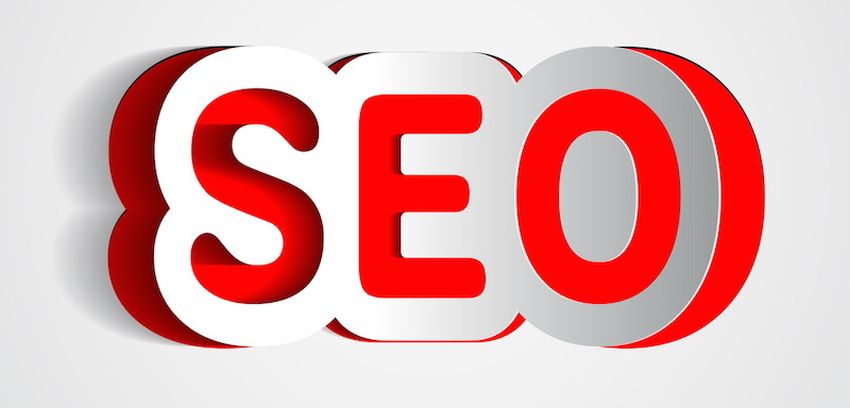
source:neilpatel.com
Back in 2014, Google introduced HTTPS as a SEO ranking signal in a bid to encourage better internet security. This means that by installing an SSL certificate on your website, you will increase the chances of your site ranking higher on Google. Of course, this is one of the ranking signals and you can blend it with other approaches for better SEO performance.

source:seotraffichero.com
Build User Trust
You want more users using your site and one way to do so is to let them trust you. If your website is an ecommerce platform, for example, you will need them to trust you enough with their sensitive data that they can use things like credit cards on your platform. Unfortunately, the nature of the Internet has made the web a very unsafe place meaning that customers tend to be wary of doing anything sensitive on websites. SSL is actually one simple way of showing customers that they can trust using your site. Customers can get to see visual cues like your business name and green padlock next to your website URL or trust badges associated with SSL certificates. This can play a role in encouraging visitors and consequently leading to more conversion rates.
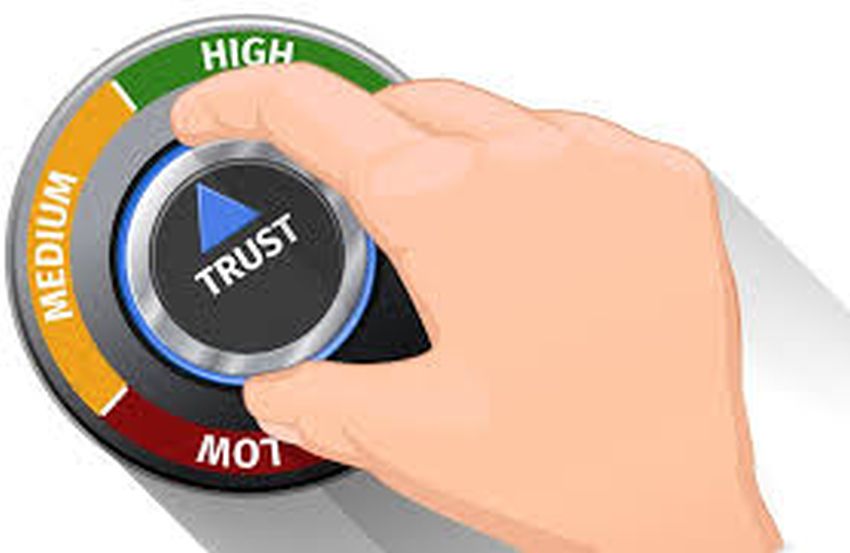
source:blog.prototypr.io
Types of SSL Certificates:
SSL certificates come in a wide array of fashions tailored for different types of websites. This means that the cost of an SSL certificate will tend to vary. It is important to understand the types of SSL certificates so that you can make a choice of what suits you best. The most popular and simple classification include:
Single Domain SSL Certificate –
As the name suggests, this type of SSL certificate will protect a single domain. This means that if you want to install it for say, www.xyz.com then it will only work on that domain but not on other subdomains.

source:ssldragon.com
Wildcard SSL Certificate –
Wildcard SSL Certificate is used for an unlimited number of subdomains for a given domain. If you buy the wildcard certificate for www.abc.com, you will secure a subdomain like careers.abc.com, support.abc.com etc. However, it can’t be used to secure a subdomain like xyz.pro.abc.com.
EV SSL Certificate –
An Extended Validation SSL Certificate (also known as EV SSL) is the highest form of SSL Certificate on the market. In Green address bar displays your company name and provides highly visual assurance to customers. This certificate is best for E-commerce websites.

source:digicert.com
Multi domain SSL Certificate –
Also known as Universal Communication Certificate (UCC), a multi domain SSL certificate can protect up to 99 Subject Alternative Names (SANs) with a single certificate. They are often tailored for businesses with lots of multiple domains for different services.
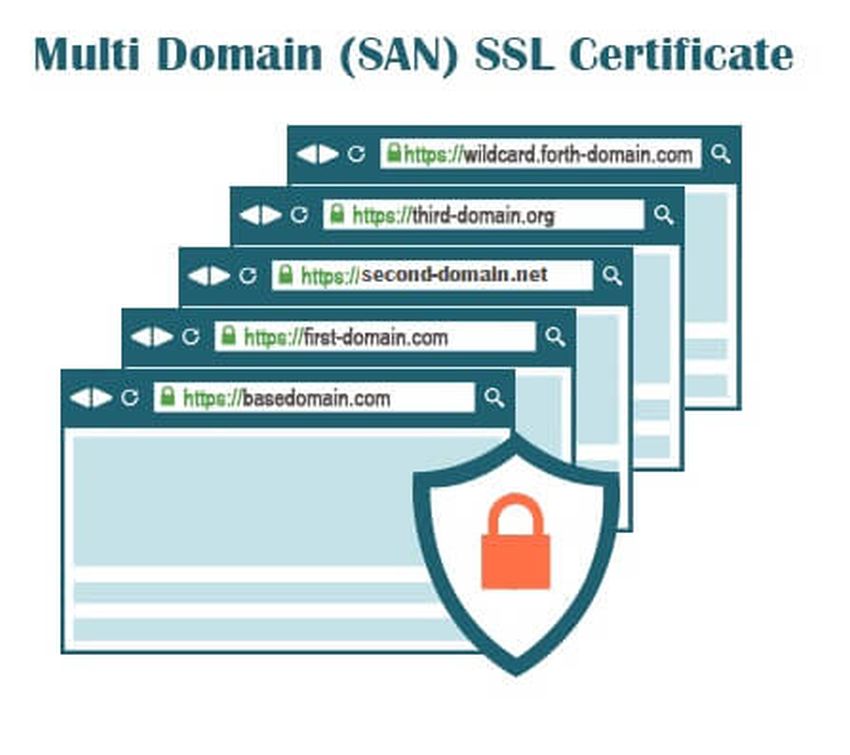
source:cheapsslsecurity.com
Tip:
Choose a single domain SSL certificate if you have a small website and you have no plans of adding an extra domain. A wildcard SSL or a multi-domain SSL, on the other hand, is a nice option if you have extra sub domains or domains.
Final Remarks: Switch From HTTP to HTTPs
It’s now time to find the right SSL for your website and make the switch from HTTP to HTTPS. It is a great way to not only stay competitive on your niche but it is also a great way to secure your consumers and your business.
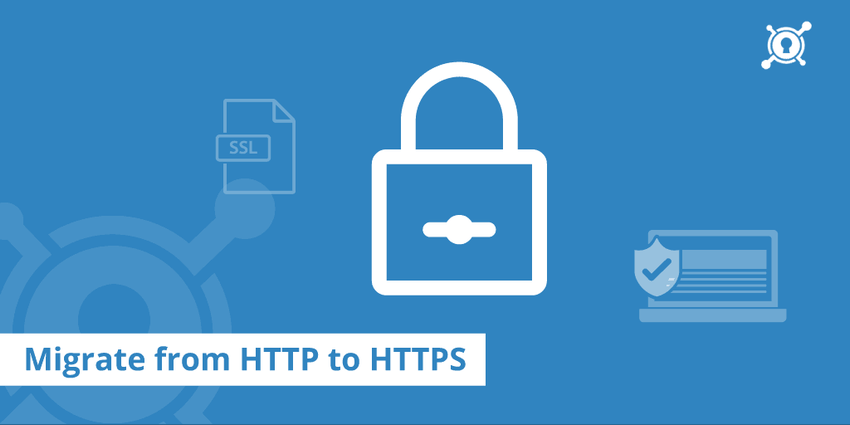
source:rohitink.com





